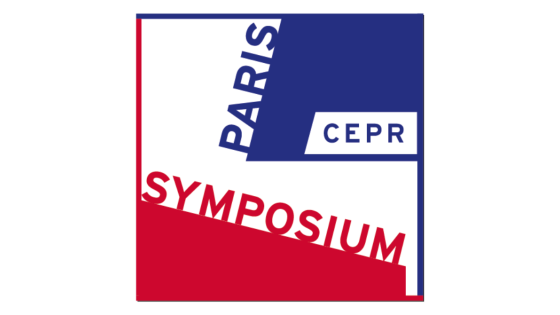|
Cristian Arcidiacono 29(University of Bern)
|
Dangerous Liaisons? Debt Supply and Convenience Yield Spillovers in the Euro Area
|
|
Laura Arnemann
(University of Mannheim)
|
The Effect of Taxes on Pay without Performance: Evidence from Executives
|
|
Eleftherios Bethmage
(Goethe University Frankfurt)
|
Puppies or Policy: Measuring Household (In)attention to Central Bank Communication
|
|
Berkeren Büyükeren
(EIEF)
|
Endogenous Local Government Formation and Nation Building
|
|
Silvia Castro
(Ludwig-Maximilians University of Munich)
|
Prosocial Behavior in the Workplace
|
|
Costanza Cincotta
(NHH Norwegian School of Economics)
|
Competitive Externalities of U.S. Government Economic Development Subsidies
|
|
Charlotte De Cannière
(KU Leuven)
|
Pump it? Market Power and the Energy Transition in the Global Oil Market
|
|
Joseph Enguehard
(École Normale Supérieure de Lyon)
|
The Political Costs of Taxation
|
|
Violeta Fernandez
(University of Sussex)
|
Youth and Digital Agriculture: do they pass the message to the family? Experimental evidence from Uganda
|
|
Gustavo Julio García Bernal (Sciences Po)
|
From Parent to Child: Intergenerational Wealth Dynamics and Inequalities
|
|
Prashant Garg
(Imperial College London)
|
Supply Shocks and On-shoring: Evidence using an AI-built Production Network
|
|
Marco Graziano
(HEC Lausanne)
|
Convenience Yields and the Foreign Demand for US Treasuries
|
|
Mojtaba Hayati
(University of Zurich and Swiss Finance Institue)
|
Scale-Dependent Returns or Dynamics of the Interest Rate?
|
|
Tobias Kawalec
(University of Oxford)
|
Debt Indexation and the Fiscal Theory of the Price Level
|
|
Sandra Kurniawati
(University of Mannheim)
|
Quantifying the Effects of Commodity Booms on Regional and Sectoral Outcomes
|
|
Regi Kusumaatmadja
(VU Amsterdam, Tinbergen Institute)
|
Internal and External R&D: An analysis of costs and benefits
|
|
Raphael Lafrogne-Joussier (National Institute of Statistics and Economic Studies)
|
Ambient Density and Urban Crime: Evidence from Smartphone Data
|
|
Clara Lindemann
(Goethe University Frankfurt)
|
Households’ Inflation Expectations and their Consumption Basket
|
|
Ningxi Liu
(King’s College London)
|
Printing and Women: The Gendered Impact of Printing Technology in Ming-Qing China
|
|
Matyas Molnar
(Central European University)
|
International Exhibitions as Trade Promotion: an Analysis of Firm Development using the 1900 Paris World Fair
|
|
Elliot Motte
(Universitat Pompeu Fabra)
|
Insult Politics in the Age of Social Media
|
|
Lennart Niermann
(University of Cambridge)
|
Tying Yourself to the Mast: Painful Debt as a Commitment Device in Self-Fulfilling Debt Crises
|
|
Kevin Parra Ramirez
(Banque de France & Sciences Po)
|
The Instruments of Profit-Shifting
|
|
Fabian Prettenthaler (University of Vienna)
|
Heterogeneous Risk Preferences, Entrepreneurship, and Wealth Inequality
|
|
Viola Salvestrini
(Queen Mary University of London)
|
Gender Diversity and Team's Decision-Making
|
|
Sabine Stillger
(University of Mannheim)
|
The Role of Firm Heterogeneity and Intermediate Inputs in Carbon Leakage
|
|
Julian Terstegge
(Copenhagen Business School)
|
Intermediary Option Pricing
|
|
Giovanni Trebbi
(Tilburg University)
|
Does Demand-Supply Narrative Disagreement Help Explain Households’ Inflation Expectation Gap?
|
|
Chiara Vergeat
(London Business School)
|
Monetary Policy and Wealth Inequality: Winners and Losers from Heterogeneous Capital Gains
|



